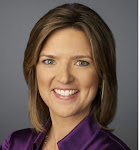 Sanjay Gupta and Lucy Lui (UNICEF Ambassador) were recently seen on the red carpet at the the UNICEF Snowflake Ball in New York. Gupta presented her with the Danny Kaye Humanitarian Award at the annual event organized to raise funds for the delivery of essential, life saving services that benefit the world's children. (Photo credit: AP)
Sanjay Gupta and Lucy Lui (UNICEF Ambassador) were recently seen on the red carpet at the the UNICEF Snowflake Ball in New York. Gupta presented her with the Danny Kaye Humanitarian Award at the annual event organized to raise funds for the delivery of essential, life saving services that benefit the world's children. (Photo credit: AP)


Late last month, the following article appeared on the Tribune Star's website about Jeffrey Toobin speaking at Indiana State University.
There may not have been a touch-screen electoral map or hologram people, but a CNN analyst was in Terre Haute on Monday.
Jeffrey Toobin, senior analyst and staff writer for The New Yorker, spoke to more than 100 people in Indiana State University’s Tilson Auditorium about the Supreme Court and politics. His speech was the third of ISU’s 2008-2009 speaker series.
Toobin said the Supreme Court didn’t get the attention it deserved during the election, adding that it was very important because whoever won the election would most likely have the chance to make at least one appointment.
“If you look at George W. Bush’s presidency, the two consequential acts of his second term were the war in Iraq and his appointments to the Supreme Court, and that’s really long lasting,” he said before his presentation.
“We’ve had soon-to-be 44 presidents, but there have only been 16 chief justices of the United States. Supreme Court justices serve for decades, not years.”
...
Jimmy Carter was the only president to serve an entire term and not make any appointments, but Richard Nixon made four in his 51/2 years as president, he explained to the crowd.
Had Sen. John McCain won the election, Toobin is sure Roe v. Wade would have been overturned within the next five to 10 years, he said.
As he spoke about the Supreme Court, he gave a brief history of the Republican Party and how it affected the court. He said a shift really began in the party in the early ’80s when a group called the Federalist Society was founded by a group of conservative lawyers.
That group was part of the new conservative agenda for the courts, he said, which was to expand executive power, end racial preferences intended to assist blacks, speed up executions, welcome religion into the public sphere and reverse Roe v. Wade to allow states to ban abortion.
He said it’s interesting to note that at this same time two young, aggressive lawyers wanted to work for President Ronald Reagan and were part of this shift: John Roberts and Samuel Alito.
“I think in knowing why they were appointed to the court and what kind of justices they are becoming, it is critical to see that this is when they came to Washington,” Toobin said, “and this is how they learned to become lawyers.”
Currently, there are four very conservative and four very liberal justices serving on the court with one swing justice who generally sides with conservatives, he said, but “the stakes in this election were especially high for the liberals because three of the four liberals are likely to leave in the next few years.”
Toobin went on to speculate who President-elect Barack Obama will appoint, should he have the opportunity: Massachusetts Gov. Deval Patrick, Michigan Gov. Jennifer Granholm and Arizona Gov. Janet Napolitano.
Because Obama has worked as a constitutional law professor, Toobin said Obama has “thought deeply about these things.” He was president of the Harvard Law Review and had the chance to clerk for the Supreme Court, but instead went back to Chicago to start teaching, start his law career and run for office, Toobin said.
“I think that’s significant because it tells you that Barack Obama is someone who believes political change comes from the ballot box rather than the courtroom,” he said. “He’s someone who believes in election and political change, not so much in the courts.”
The current Supreme Court is the first in American history where all nine justices are former appeals court judges, Toobin said. “The court that decided Brown v. Board of Education in 1954, not one of the justices had ever been a judge on any court before.”
Obama, Toobin believes, will go back to that type of court and “reach to non-judges to go on the Supreme Court, to political figures, to people who have broader experience than just the courtroom because he believes that is more useful than just a life inside of the courts.”



















































No comments:
Post a Comment